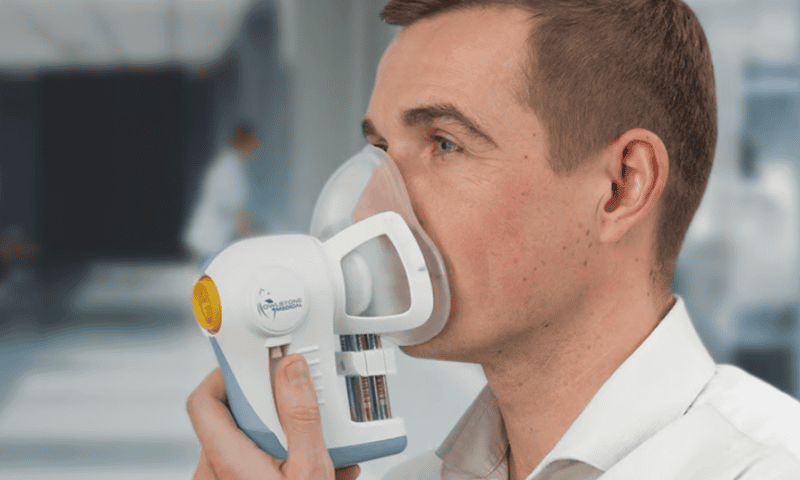The FDA has launched a project with the Bill and Melinda Gates Foundation to help aid the development of breath-based diagnostics for detecting diseases more easily among underserved populations, including in rural, remote and impoverished areas.
These types of tests aim to capture complex profiles of the multiple chemicals that are exhaled by the body with every breath, and how they change when affected by disease.
To start, the foundation and the agency’s Center for Devices and Radiological Health will begin by cataloging samples from both healthy participants and people infected with the bacteria that causes tuberculosis—to build a database that can be employed by researchers and testmakers.
“This full characterization and establishment of a basal-level breath-print will give the diagnostics community the ability to confidently identify disease biomarkers and facilitate the development of next-generation diagnostic devices that can be used by clinicians and consumers at the point of care and in the home,” CDRH Director Jeff Shuren and Ed Margerrison, director of the center’s Office of Science and Engineering Laboratories, said in an agency statement.
The collaboration will be supported by a $1.9 million grant from the Gates Foundation, which will also work with the National Institute of Standards and Technology to assemble a web application for identifying exhaled volatile organic compounds linked with mass spectrometry data.
“Guided by our shared interest in advancing health equity and equality, this partnership can ultimately open the possibility of widespread disease detection in medically underserved populations both domestically and globally,” said Shuren and Margerrison.
In 2022, the FDA granted an emergency authorization to a suitcase-sized breathalyzer for detecting cases of COVID-19, though at the time the agency said that positive results should be backed up by a PCR test.
Meanwhile, the Gates Foundation this past April handed $6.5 million to Owlstone Medical, developer of handheld “breath biopsy” sample capture devices—including a $5 million equity investment and a $1.5 million grant for studying infectious diseases.
The U.K.-based Owlstone, a former Fierce Medtech Fierce 15 winner, has also been exploring airborne compounds that can serve as biomarkers to track liver function, gastrointestinal conditions and cardiometabolic diseases.
“Early diagnosis is a critical determinant of health outcomes. By enabling swift and non-invasive detection of disease, breath analysis has the potential to save lives and dramatically reduce the burden of illness in resource-constrained settings,” Owlstone’s co-founder and CEO, Billy Boyle, said in a statement.
That Gates grant will support two projects: One, through a partnership with the University of Cape Town in South Africa, will compare patients with TB to a control group, alongside in vitro tests. The other will tap the U.K.’s Imperial College and Oxford University to compare breath and blood samples among people with HIV.
Both efforts will contribute toward Owlstone’s Breath Biopsy VOC Atlas, to help contextualize the myriad volatile organic compounds found in exhaled breaths, for development into diagnostic biomarkers.

